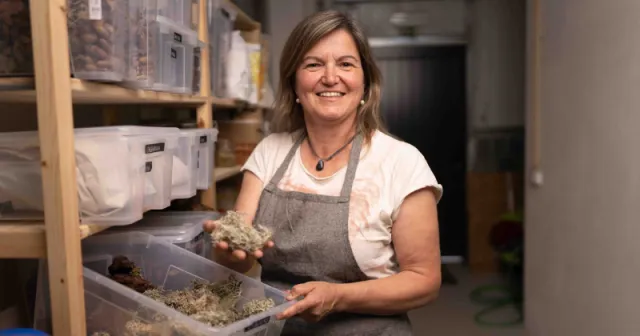The KSL Study Centre is one of three Finnish study centres involved in the Erasmus+ project European expertise on education as support for civic society. The employees of the study centre have been able to attend courses or learn about the organisation of their choosing through job shadowing.
As soon as I started working at KSL a little over a year ago, I became aware of my opportunity to join this learning experience. My new job entailed so many new things that it took me a while to even understand what types of skills I needed. This spring, I finally found my ideal match among the education providers organising Erasmus services. I spent the first week in April in Galway, Ireland, attending a course titled Motivation and Empowerment in Education.
On the one-week course, we learned about motivating people. Our group was small: seven participants from Poland, one from Martinique, and me. This, in fact, became my first lesson; Erasmus actually spans into the Caribbean. All the participants were not able to find a common language, but one of the Polish members helped with interpretation. M-Powered, the organisation behind the course, is also Polish and their two representatives were also occasionally able to help with communications.
Our instructor was Diarmuid Lavelle, a therapist and coach from Ireland. His work is based on solution-focused brief therapy, the principles of martial arts (especially Qigong, Tai Chi and Aikido) as well as the utilisation of mental images and breathing. When signing up, I was wondering what this course could teach me. I decided to be open to any lessons that might come my way.
Even though the course did not yield any life-changing epiphanies, it did give me tips on new means of approaching and facing even familiar subjects, such as boosting motivation, communication and group behaviour. The warm and encouraging attitude of our instructor guided us towards opportunities to change our habits of operating. He started by talking about how motivating people is not about the goals or how to set them but about the body, its posture and breathing. The body is a tool that we can use to adjust our mind and emotions. To make chance possible, we must be able to truly feel it. Some of the key phrases during the week included “Mind is the body, body is the mind”, “Body first, mind after” and “Breathing is the ground”.
We used breathing exercises to draw strength into our body and mind. These were some of the best lessons from the course; small things to do in the middle of your working, training or conference day. In addition to various exercises, we located emotions and gave them colours, shapes and sizes. We also moved our emotions from one place to another. We learned to find the ‘emotional line’ in our body and to be present here and now.
Many of the topics related to communication and group behaviour seemed familiar as our own organisation also approaches education from the principles of communal pedagogics. I could easily agree with Diarmuid’s ideas of the importance of building team spirit and a sense of community in enabling learning.
We were slightly disappointed to learn that our planned swim in the 10-degree water of the Atlantic was cancelled. The purpose of the exercise would have been to challenge yourself and develop your strengths. Sadly, even our local resident could not help but be deterred by the freezing Galway. Despite this setback, I had an interesting and even somewhat calming week in the middle of a busy spring. As an experience, I consider it valuable and memorable. I gained practical tips and tools for dealing with hurry in everyday life, both at work and at home. I was also able to establish new networks and connections, despite the language barriers.
Tuula Kumpumäki
KSL Study Centre
This article is part of a series of articles about learning experiences in the field of adult education in European context. Our ERASMUS+ KA1 project is called “European Educational Know-how Supporting Civil Society”.





